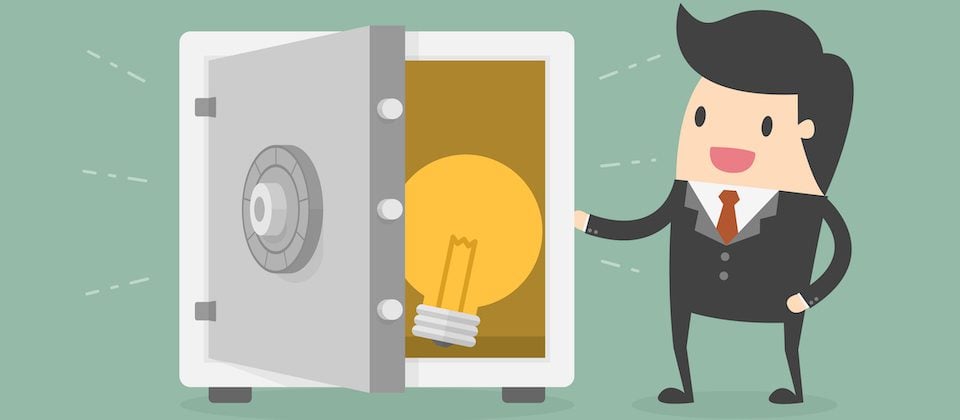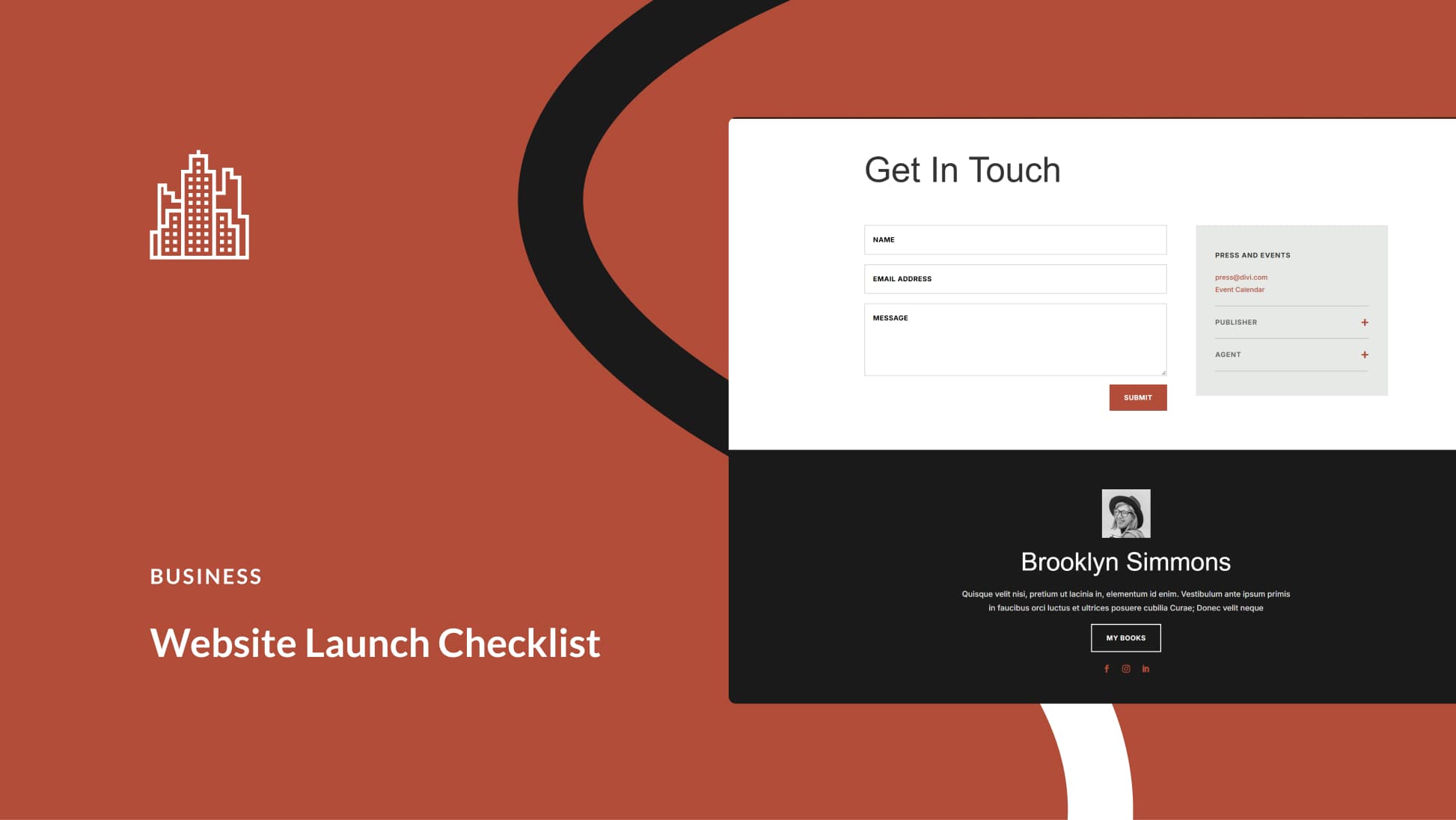You and your team have probably poured a lot of creative energy into your business, so protecting your content, brand, and inventions from being stolen is important. However, understanding how to do this with copyrights, trademarks, and patents can get confusing.
In this article, we’ll explain the differences between these three types of intellectual property protections. Then we’ll discuss the two key ways they affect your business so you can protect your creations and avoid legal trouble with other companies.
Let’s get started!
The Importance of Protecting Your Intellectual Property
‘Intellectual property‘ basically refers to anything you create. This includes content (such as blog posts), original designs or images, or even e-books. It also includes your brand elements, such as your logo, brand name, and any other distinguishing features. And finally, it includes inventions, or new processes and technologies.
Protecting your business’ intellectual property is vital. If you don’t protect your content, others can copy it, pass it off as their own, and use it to make money. The same is true for your inventions – protecting them ensures that you alone generate revenue from the sale of your intellectual property.
Failing to protect your brand could lead to serious damage to your business’ image. Without protection, your brand may be used by others to deceive customers or diminish your brand’s reputation. The consequences of not protecting your intellectual property are severe and could cost you a significant amount of income.
The Difference Between Copyrights, Trademarks, and Patents
In short, copyrights, trademarks, and patents all protect different types of intellectual property. Knowing when to apply the right protection ensures all of your creations stay safe in your control.
Copyrights
Copyrights protect content such as text or images, and determine how content can be legally reproduced and distributed. You may be familiar with copyright as the protection used for books and movies. Copyright laws are what make it illegal to record films in theaters.
You obtain a copyright the moment you produce content and share it. If you write a blog post and publish it online, you technically have the copyright to it. However, unless you register the copyright, you don’t have much power if someone steals and redistributes your content.
Copyright is violated when you reproduce and distribute someone else’s content without permission. It sometimes also extends to creating derivative works, or content that is notably similar to the copyrighted content.
Trademarks
Trademarks protect your brand, including your logo, brand name, and other features associated with it. This could include a slogan, a packaging, or even certain patterns. Burberry has trademarked the check pattern used on many of their products, for example.
Much like a copyright, you obtain a trademark as soon as you start using it, but it’s difficult to hold legal influence without registering it. Your trademark is violated if another company uses your brand’s identifying features, or confusingly similar ones, to sell products or services.
Patents
Finally, patents protect inventions, new technologies, or processes. A patent prevents others from recreating and distributing your invention for a specified period of time, usually twenty years. This enables you to reap all the rewards of your invention when it’s first on the market.
To obtain a patent, you must submit an application that includes careful documentation of how you came up with your idea and executed it. It’s crucial to keep your invention confidential before receiving your patent, or others may recreate your invention, making your application invalid.
Violating a patent consists of using or distributing an invention without permission. You may choose to allow certain parties to legally use or distribute your invention by selling licenses.
How Copyrights, Trademarks, and Patents Affect Your Business (2 Key Ways)
Making yourself aware of how intellectual property protections impact your business will help your company stay out of legal trouble. It’s important for your whole team to know these two ways copyrights, trademarks, and patents affect your business.
1. Protecting Your Business’ Intellectual Property
As we discussed earlier in this article, it’s important to protect your business’ intellectual property to prevent other companies from taking advantage of you. By understanding the differences between the protections, you can prevent others from stealing your work – and know what to do when it’s been stolen.
If your business produces content for profit, such as e-books or software, it’s important to protect it with a registered copyright. This way you can take action should someone try to copy it. However, if you create content for clients, it’s up to your client to get a registered copyright for the content.
Your logo, brand name, and slogan are the most common and identifiable brand elements you should trademark. Registering each element separately provides the best protection. Keep in mind that this process can get expensive, so you may want to wait until your brand is generating revenue to do it.
If your business has developed any new technologies or processes, you can apply for a patent and prevent others from making money by selling your invention. However, you cannot patent an idea, so you’ll need to fully develop your invention before you can patent it, and keep your concept under wraps in the meantime.
2. Preventing Your Team from Committing Accidental or Purposeful Infringement
The last thing any business owner or manager wants is a lawsuit against their company. Making sure your team knows how to avoid committing infringement, and the consequences for doing so, can help you avoid getting into legal trouble with other businesses.
To avoid violating copyrights, encourage your team to use content that is under a Creative Commons license. This content is free for anyone to use and distribute. It’s also important to always cite sources for ideas, text, and other content borrowed from sources.
It’s a little tougher to violate trademarks accidentally. Setting guidelines for your team about how to use (or not use) other brands’ features can ensure there are no mistakes, however. Additionally, you can search the trademark database to see if there are any registered trademarks similar to yours before you start using it.
Accidentally violating patents is surprisingly easy. No one can know every invention ever released, and you may come up with what you think is an original idea, only to find out someone else patented it first. Conducting a freedom to operate analysis before launching a new product or service is a smart safety measure.
How to Decide Whether You Need to Copyright Your Website
Whether or not to register a copyright for your web content can be a tricky decision. Some don’t feel the need to, since the content is copyrighted from the moment it’s published. However, registering a copyright for your site enables you to take action in the event content is copied.
Even so, registering a copyright can be expensive. This is especially true since a registered copyright will only protect content on your site at the time of registration, and not new content – you’ll have to keep renewing the registration. New sites with little content probably won’t benefit much.
If you have an extensive library of content that generates income, on the other hand, a copyright may be worthwhile. Say you have a ‘How-to’ style blog post that brings in ad revenue. Without a registered copyright, someone else might get away with copying your content, using it on their site, and competing with your post for readers.
In this instance, the copycat could end up making ad money that would have been yours had you been able to prevent them from stealing your content and your readers. An investment in a registered copyright may have proved worth it if you could have deterred the copycat or taken legal action against them.
Conclusion
Once you know the differences between copyrights, trademarks, and patents, it’s easier to protect your company. You can prevent others from stealing your work, and make sure your team knows how to avoid committing infringement as well.
In this article, we discussed the differences between copyrights, trademarks, and patents. We also noted two important ways these protections impact your business:
- Protecting your business’ intellectual property.
- Preventing your team from committing accidental or purposeful infringement.
Do you have questions about copyrights, trademarks, or patents? Ask them in the comments section below!
Article thumbnail image Dooder / shutterstock.com









Hello John Hughes,
Awesome blogs, Thank you so much,
Glad to be of service, Gita! 🙂
The internet has made this whole area a bit of a minefield. While Simon is correct that different countries will have different laws, if you breach someones copyright in the USA when you are located in the UK then you may be sued under the USA law.
Very helpful information. Thanks for shedding some light on this subject ?
Happy to be of service, Jim! 🙂
Nice , amazing blog
Thanks sir
Thank you, Protap! 🙂
Nicely succinct. As a former director of Anti-Piracy for a global concern I have given many talks on IP rights and protection. One point I would add is that if you right code always embed a copyright notice. It may be enough to keep pirates at bay, but it will help. Also in many countries it is easy to bring a copyright claim, but a patent claim is expensive to take to court.
Thank you for your insight, Steve. 🙂
A lot of the content of this blog only applies only to the US, you should make that clear so foreign readers don’t take bad advice.
The rules and laws differ widely around the globe, for example in the UK we don’t need to register Copyright and what you can trademark is very different to the US.